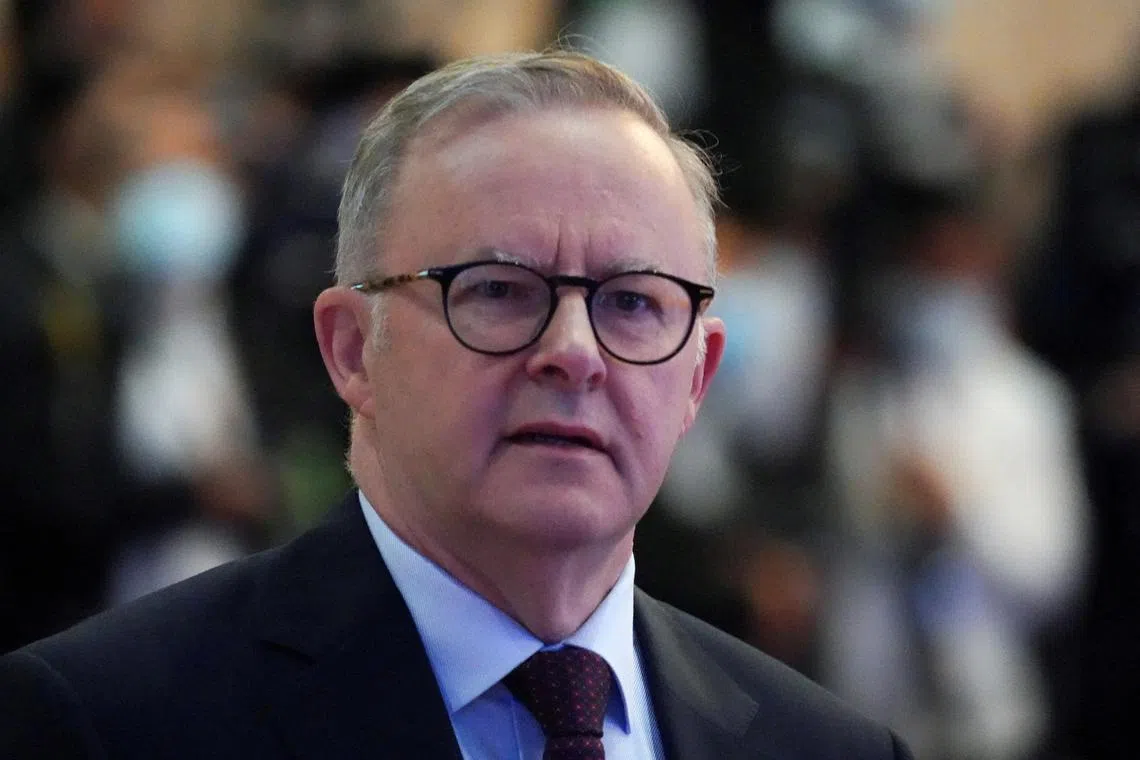Australia to hold referendum on indigenous voice in policy-making
Sign up now: Get insights on Asia's fast-moving developments

Australian PM Anthony Albanese argues the constitutional change would help Australia “come together as a nation".
PHOTO: REUTERS
SYDNEY - Australians will decide in 2023 if the country’s Constitution will be changed to give an institutional voice to the long-suffering indigenous population, the government said on Wednesday.
The proposed “Voice to Parliament” aims to give indigenous Australians a greater say in national policy-making, as they battle poorer health, lower incomes and higher barriers to education.
Indigenous Australians are not currently mentioned in the country’s Constitution – adopted in 1901 – and any move to change that is politically contentious.
Australia’s centre-left government was elected in May and had promised to hold a referendum on the issue – but until now has shied away from setting a date.
Prime Minister Anthony Albanese said a referendum on an Indigenous Voice to Parliament will be held before December 2023, the ABC News reported on Wednesday.
He made the announcement while addressing the Woodford Folk Festival in Queensland, in a speech that paid homage to former prime minister Bob Hawke.
“This will give respect to First Nations people, and it will enhance both the way Australians see ourselves, and the way we are seen by the world.”
The government has been under increasing pressure to put forth more detail on the Voice, but it is understood the government is not intending to outline all the rules and functions of the body before it is voted on by the Australian public, ABC News said.
Indigenous Australians Minister Linda Burney also said at the festival: “The people will vote on the principle, for indigenous people to be guaranteed a fairer say on the laws and policies made about them, and Parliament will legislate the detail.”
Advocacy group Reconciliation Australia said putting it in the Constitution would mean it cannot be “shut down” if a different government has a change of heart in the future.
“Embedding a Voice in the Constitution would recognise the special place of Aboriginal and Torres Strait Islander people in Australia’s history,” the group has said.
Of Australia’s 25 million residents, about 900,000 identify as indigenous.
Widespread discrimination
The conservative Nationals party – a minor political player – has already announced it will campaign against the Voice.
The centre-right Liberal party, Australia’s main opposition, has yet to take a position.
Critics have called the Voice “another layer of bureaucratic red tape” and have questioned whether it will make any difference in remote indigenous communities.
Indigenous Australians settled in the country an estimated 65,000 years ago, according to the national museum, but have suffered widespread discrimination and oppression since the arrival of British settlers in the late 18th century.
They were still banned from voting in some Australian states and territories until the 1960s.
The inequalities facing the indigenous population remain stark – they have life expectancies years shorter than other Australians and are far more likely to die in police custody.
Indigenous Australians make up some 2 per cent of the total population but, according to the Australian Law Reform Commission, constitute 27 per cent of the prison population.
There are strong international precedents behind the Voice proposal – both Canada and Norway amended their Constitutions in the 1980s to better recognise indigenous residents. AFP


